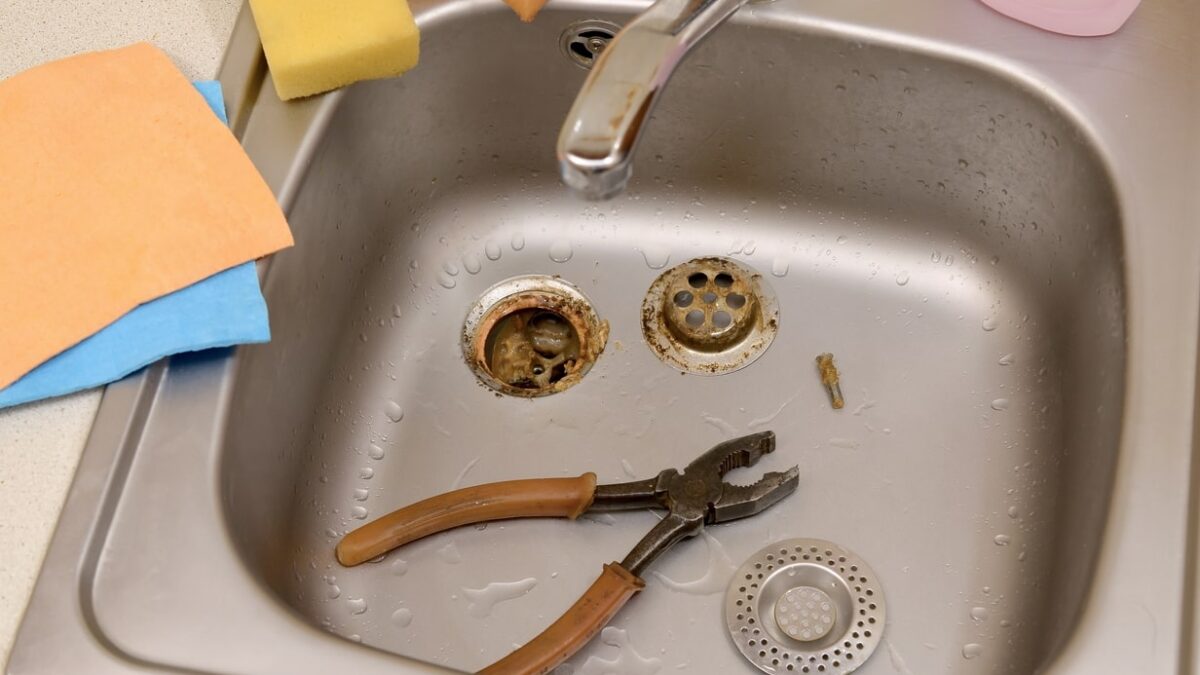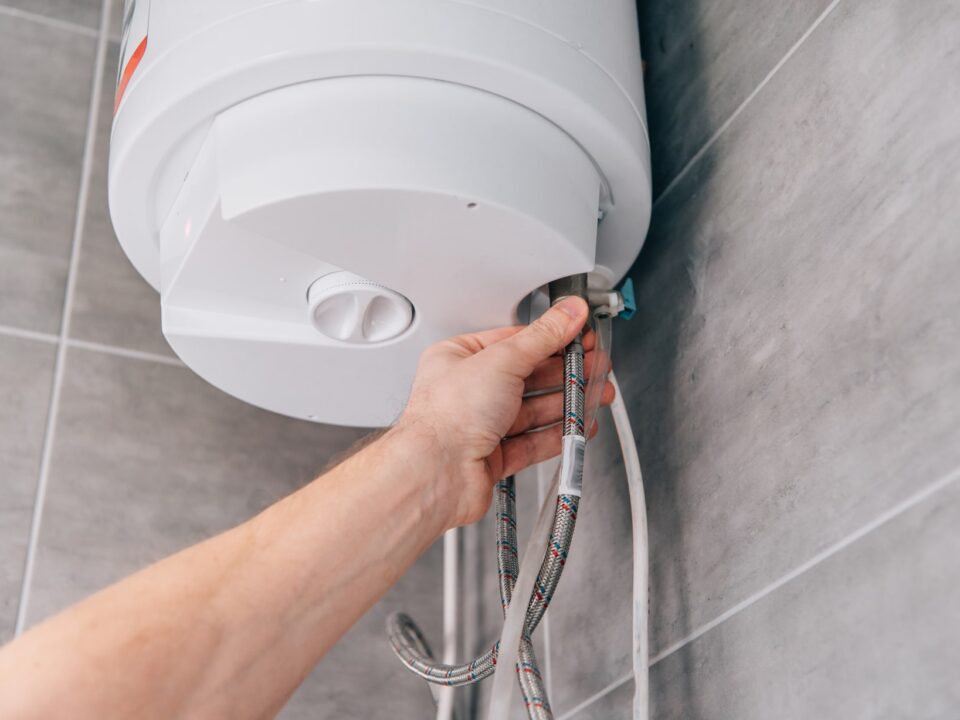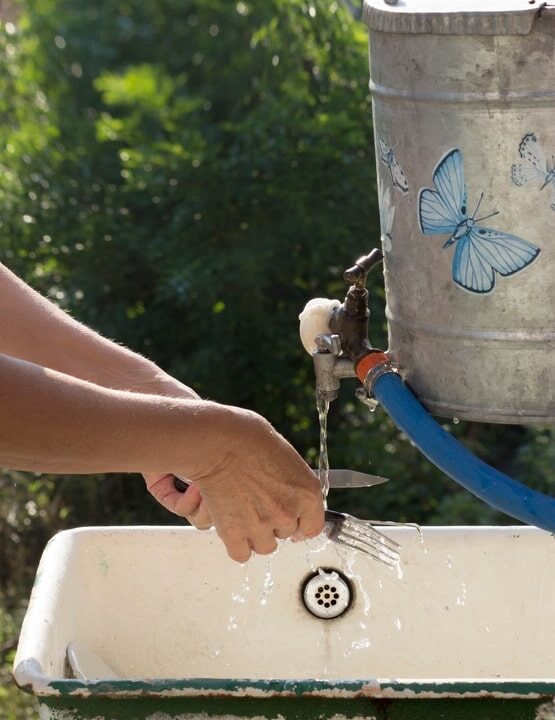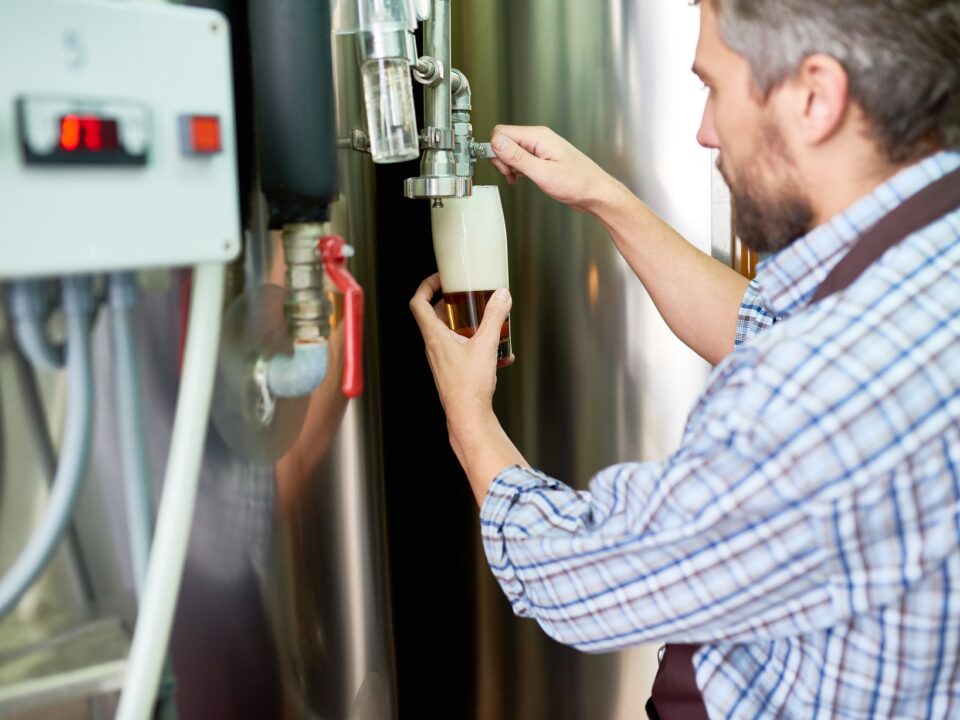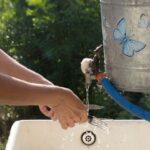
Water Consumption 101: How Much is 40 Gallons of Water and its Household Usage?
March 25, 2024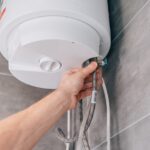
Water Heater Woes: Why is My Hot Water Running Out So Fast?
April 19, 2024
From clogged drains to sewer backups, there are various reasons why your drains may be making that unpleasant noise.
We explore the common causes of gurgling drains and offer practical solutions to fix them. Whether you need to plunge the drain or call a professional plumber, we’ve got you covered.
Discover how to prevent gurgling drains and know when it’s time to seek professional help.
What Causes Gurgling Drains?
Gurgling drains can be caused by various issues within your plumbing system, leading to unpleasant noises and potential drainage problems. The common causes of gurgling drains include clogged pipes, improper venting, and sewer backups.
When pipes get clogged with debris, such as hair, grease, or soap scum, the flow of water becomes obstructed, causing air bubbles to move through the water and creating gurgling sounds. Improper venting, where air cannot flow freely through the plumbing system, can also lead to the same phenomenon.
Sewer backups can occur due to blockages in the main sewer line, leading to stagnant water that produces unpleasant odors and gurgling noises as it tries to find its way through the blocked pipe.
Clogged Drain
A clogged drain is a common reason behind gurgling sounds in your plumbing system. When debris accumulates in the pipes, it obstructs water flow, leading to gurgling noises and slow drainage.
To tackle such blockages, one effective DIY solution is using a drain snake. This flexible tool can help break up and remove the buildup causing the blockage. Alternatively, you can try homemade remedies like a mixture of baking soda and vinegar. Pouring this down the drain and flushing it with hot water can help dislodge clogs.
To prevent these issues altogether, regular drain cleaning is crucial. By maintaining clean drains, you can avoid potential blockages and keep your plumbing system functioning smoothly.
Improper Venting
Improper venting in your plumbing system can also lead to gurgling drains. When vent pipes are blocked or improperly installed, air pressure imbalances occur, causing gurgling sounds during water drainage.
This disruption in the air pressure can result in water flow issues, slow drainage, and potential backups in your plumbing fixtures. Blocked vents not only lead to unpleasant noises but can also affect the overall functionality of your system. Trapped air in the plumbing lines due to venting issues can create pockets of stagnant water, promoting the growth of bacteria and odors in your pipes. Ensuring that your venting system is properly designed and maintained is crucial to avoid these common plumbing problems.
Sewer Backup
A sewer backup is a serious issue that can result in gurgling drains and foul odors. When the main sewer line is blocked or damaged, wastewater can flow back into your property, causing gurgling sounds in the drains.
You may also notice water backing up in sinks, toilets, or tubs, indicating a potential sewer backup. Drain blockages, tree root intrusions, and aging sewer lines are common causes of such problems. It is crucial to address sewer backups promptly to prevent extensive water damage and health hazards within your property.
Seeking professional assistance from a licensed plumber is highly recommended as they have the expertise and tools to diagnose and resolve the issue efficiently.
How to Fix a Gurgling Drain?
Fixing a gurgling drain requires a systematic approach to identify and address the underlying issues causing the gurgling sounds. Implementing DIY solutions or seeking professional assistance can effectively resolve the problem.
If you encounter a gurgling drain, the first step is to try plunging the drain. Plunging can help dislodge minor clogs that are causing the gurgling noise.
If plunging doesn’t work, the next method to consider is using a drain snake. A drain snake is a flexible tool that can reach deeper into the pipes to clear out stubborn blockages.
For more severe blockages, hydrojetting may be necessary, as it uses high-pressure water to effectively clean the pipes and remove buildup.”
Plunge the Drain
One of the initial steps to fix a gurgling drain is to plunge the drain using a plunger. This simple yet effective method can help dislodge minor blockages and restore proper water flow.
To ensure successful plunging, it’s important to create a tight seal between the plunger and the drain opening. Press the plunger firmly over the drain and plunge up and down vigorously several times. For stubborn clogs, combining the plunge with hot water or a mixture of baking soda and vinegar can help break down the blockage. In case the plunging doesn’t work, it might be necessary to use a drain snake or auger to reach deeper blockages. Preventive measures like avoiding pouring grease and coffee grounds down the drain can help prevent future issues.
Use a Drain Snake
For more stubborn blockages causing gurgling sounds, using a drain snake can help reach deeper into the pipes to clear the obstruction. This method is effective for removing debris or buildup causing drainage issues.
Before utilizing a drain snake, it is crucial to conduct a thorough inspection of the drain to assess the severity of the blockage. Inspecting the pipes can help identify potential issues such as cracks, tree root intrusions, or collapsed sections that may require more extensive repairs. In cases where the blockage is due to structural damage or severe deterioration of the pipe, a complete pipe replacement may be necessary to ensure long-term functionality and prevent recurring clogs.
Check and Clean the Vent Pipes
Inspecting and cleaning the vent pipes is crucial in resolving gurgling drains caused by improper venting. Clearing any obstructions or debris from the vent system can restore proper airflow and eliminate gurgling noises.
Regular maintenance of these vent pipes prevents blockages, ensuring that wastewater flows smoothly through the drainage system. Along with vent pipe cleaning, checking the drainage cleanout is equally vital for maintaining optimal airflow. The cleanout serves as a key access point to remove any accumulated debris that might impede proper drainage.
To prevent future gurgling issues, consider installing a drain cover or grate to prevent debris from entering the drainage system and causing obstructions. By implementing these drainage solutions, you can avoid potential clogs and maintain efficient water flow.
Call a Professional Plumber
In cases where DIY methods fail or the gurgling drains persist, seeking the expertise of a professional plumber is recommended. Professional plumbers can diagnose the root cause of the issue and provide effective solutions.
Their in-depth knowledge and specialized tools enable them to troubleshoot and fix complex drainage problems efficiently. It’s not just about fixing visible issues; skilled plumbers can also identify potential underlying issues to prevent future emergencies.
Professional plumbers offer emergency services, ensuring that help is available round the clock for any urgent plumbing issues that may arise, providing peace of mind to homeowners in times of crisis.
How to Prevent Gurgling Drains?
Preventing gurgling drains involves proactive maintenance and adopting good practices to keep your plumbing system in optimal condition. By following preventive measures, you can reduce the risk of encountering drainage issues.
- One essential preventive strategy is to ensure proper disposal of grease, as buildup can lead to clogged drains.
- Regular drain cleaning is another key aspect of maintaining healthy water drainage.
- DIY plumbing fixes, such as using a mixture of baking soda and vinegar to clear minor clogs, can help prevent larger issues from occurring.
Being mindful of what gets flushed down the drains, like avoiding pouring chemicals or non-biodegradable items, can contribute to the longevity of your plumbing system.
Properly Dispose of Grease and Food Scraps
One of the key preventive measures to avoid gurgling drains is to properly dispose of grease and food scraps. These kitchen residues can accumulate in the pipes, leading to drainage issues and potential plumbing maintenance problems.
To maintain a healthy plumbing system and prevent blockages, it’s crucial to never pour grease down the drain as it solidifies and clogs pipes over time. Instead, let grease cool and dispose of it in a designated container.
Food scraps should be scraped into the trash rather than rinsed down the sink. Regularly cleaning your drains with a mixture of vinegar and baking soda can help break down buildup. Scheduling periodic professional plumbing inspections can catch any potential issues early, saving you from costly repairs down the line.
Use a Drain Strainer
Installing a drain strainer in your sinks can help prevent debris and foreign objects from entering the pipes, reducing the risk of drain problems and foul odors. This simple tool can significantly improve your plumbing system’s health.
By catching hair, food particles, and other potential clog-causing materials before they can build up in your pipes, a drain strainer plays a crucial role in maintaining smooth drainage flow. Not only does it prevent blockages, but it also aids in the prevention of costly repairs and the need for harsh chemicals to unclog drains.
When selecting a drain strainer, opt for one with fine mesh to effectively capture even the smallest particles, ensuring your pipes stay clear and odor-free. The installation process is typically straightforward, requiring minimal effort and providing long-lasting benefits.
Regularly Clean and Maintain Your Drains
Maintaining clean drains is essential for proper water flow and preventing gurgling sounds. Regular cleaning and maintenance of your plumbing fixtures can help avoid blockages and ensure smooth drainage.
One effective DIY maintenance routine for keeping your drains clean is pouring a mixture of hot water and vinegar down the drain regularly to break down any buildup.
Using a drain snake to remove hair and debris from the pipes can prevent clogs. It’s also a good idea to install drain guards to catch large particles before they enter the pipes.
Install a Sewer Backflow Preventer
Installing a sewer backflow preventer is a proactive measure to protect your property from sewer backups and water damage. This device helps prevent wastewater from flowing back into your home during plumbing emergencies.
By having a sewer backflow preventer in place, you can avoid costly repairs and cleanup associated with sewer backups. The installation process involves placing the preventer in the main sewer line to stop any reverse flow. It works by automatically closing if it detects a change in water pressure, effectively blocking the backflow of sewage. By mitigating the risk of water damage and contamination, this device can save you from the inconvenience of dealing with extensive plumbing maintenance and health hazards associated with unsanitary water exposure.
When Should You Call a Professional Plumber?
Knowing when to call a professional plumber for gurgling drains is crucial to addressing serious plumbing issues promptly. Certain signs indicate the need for professional assistance to prevent further damage.
- Persistent foul odors emanating from drains or visible sewer backups are definite red flags that shouldn’t be ignored. In such cases, it’s imperative to seek timely leak detection services to pinpoint the source of the problem accurately.
- Ignoring these warning signs can lead to extensive water damage, mold growth, and potential health hazards. Emergency plumbing services are designed to provide quick solutions and prevent plumbing emergencies from escalating.
It’s always better to be proactive and consult a professional plumber at the first sign of trouble to ensure the safety and integrity of your plumbing system.
Persistent Gurgling Drains
Persistent gurgling drains that do not improve with DIY methods signal a deeper issue within your drainage system. Seeking assistance from plumbing contractors experienced in sewer cleaning is essential to diagnose and resolve the underlying problem.
Ignoring or delaying addressing these drainage concerns can lead to more serious consequences such as sewage backup, foul odors, or potential structural damage to your property.
Plumbing contractors have the expertise and specialized equipment to conduct thorough inspections, identify blockages or leaks, and effectively clean sewer lines. Common issues that may require professional intervention include tree root intrusions, pipe corrosion, or improper installation.
Timely maintenance and proactive measures can help prevent costly repairs and ensure the proper functioning of your drainage system.”
Multiple Drains Gurgling
When multiple drains in your home exhibit gurgling sounds simultaneously, it indicates a systemic issue that may require the expertise of a plumbing company. Prompt pipe repair and comprehensive drainage solutions are necessary to restore proper functionality.
Gurgling sounds can be a sign of potential blockages, leaks, or other underlying issues within the plumbing system. In scenarios where drains are slow to empty, emit foul odors, or experience frequent backups, seeking professional assistance becomes imperative for effective troubleshooting and repair.
Plumbing companies play a crucial role in diagnosing the root cause of drain problems, using advanced techniques and tools to implement lasting solutions. By addressing drainage issues promptly, homeowners can prevent costly water damage and maintain a healthy, efficient plumbing system.
Foul Odors Coming from Drains
Foul odors emanating from drains are a clear indication of underlying plumbing issues that require attention. Addressing home repairs related to drain clearing and water pressure promptly can help eliminate odors and restore a hygienic environment.
These unpleasant smells typically result from a buildup of organic matter, grease, or debris within the pipes, leading to bacterial growth and blockages. Regular maintenance such as using drain cleaners or natural solutions like baking soda and vinegar can prevent such issues.
Low water pressure can exacerbate drainage problems, causing stagnant water that contributes to the foul odor. Maintaining optimal water pressure is vital for ensuring smooth water flow and preventing clogs. By staying proactive and addressing these issues promptly, homeowners can keep their plumbing systems in good condition and their living spaces fresh and clean.
Sewer Backup
Experiencing a sewer backup due to gurgling drains demands immediate attention to prevent extensive water damage and health hazards. Contacting emergency plumbing services for swift resolution of the blockage is crucial to safeguard your property.
If left unattended, sewer backups can lead to a range of serious issues, including mold growth, structural damage, and water supply contamination. The risks associated with drain blockages extend beyond just property damage; they can pose health risks to you and your family.
In such situations, it’s vital to prioritize safety and seek professional help promptly. Emergency plumbing services are equipped to handle these crises efficiently and effectively, offering solutions that clear the blockage and mitigate any potential long-term repercussions.
DIY Methods Not Working
If your DIY attempts to resolve gurgling drains have been ineffective and the issue persists, seeking professional plumbing services is advisable. Experienced plumbers can offer expert advice and conduct a thorough drainage cleanout to address the root cause.
DIY methods, although cost-effective initially, may not always provide a lasting solution for complex drainage issues. Without the proper tools and expertise, DIY attempts could potentially worsen the problem or only offer temporary relief. Professional plumbers have the knowledge and equipment to accurately diagnose the underlying issues causing the gurgling drains. By investing in professional services, you can ensure a comprehensive solution that not only resolves the current symptoms but also prevents future issues, saving you time and money in the long run.

